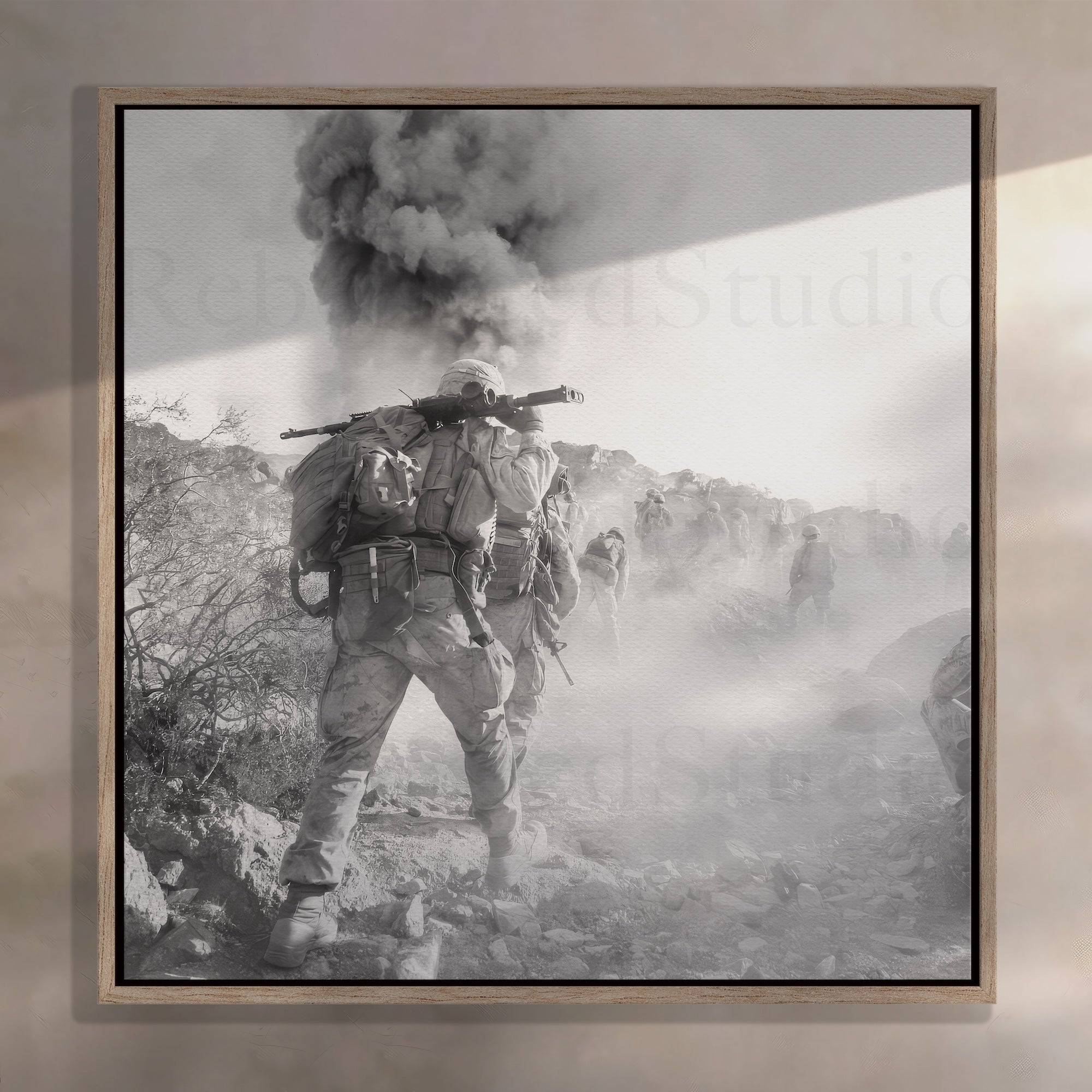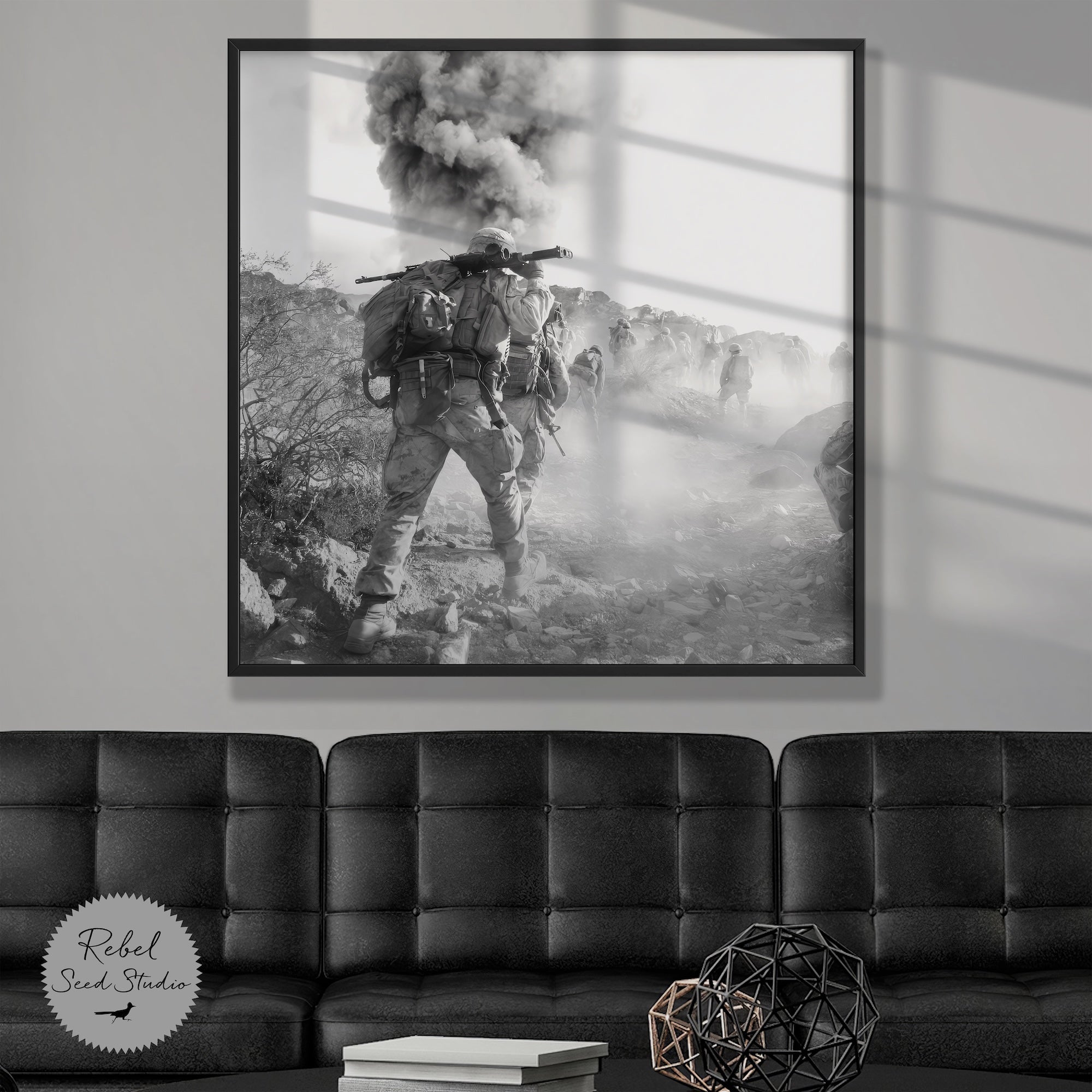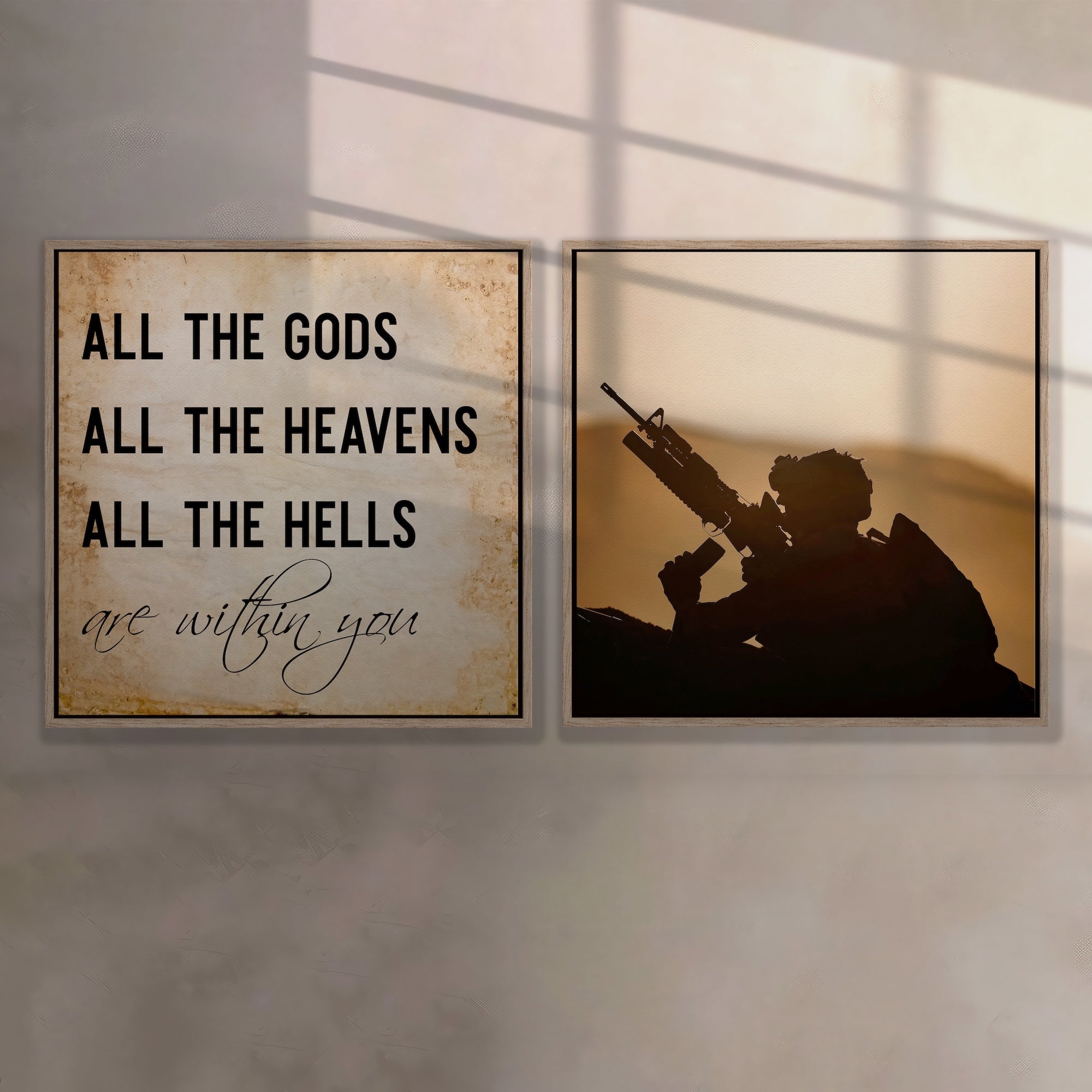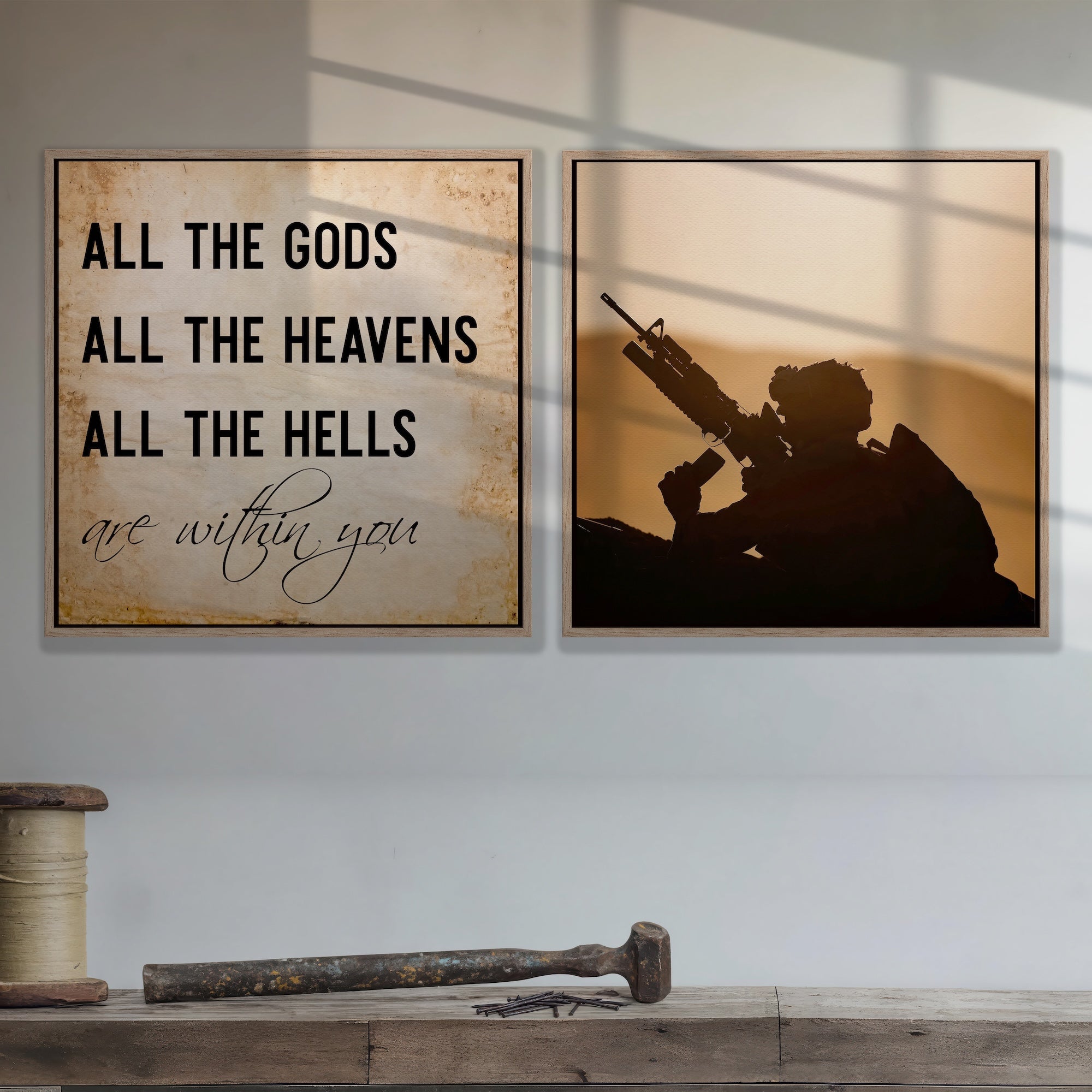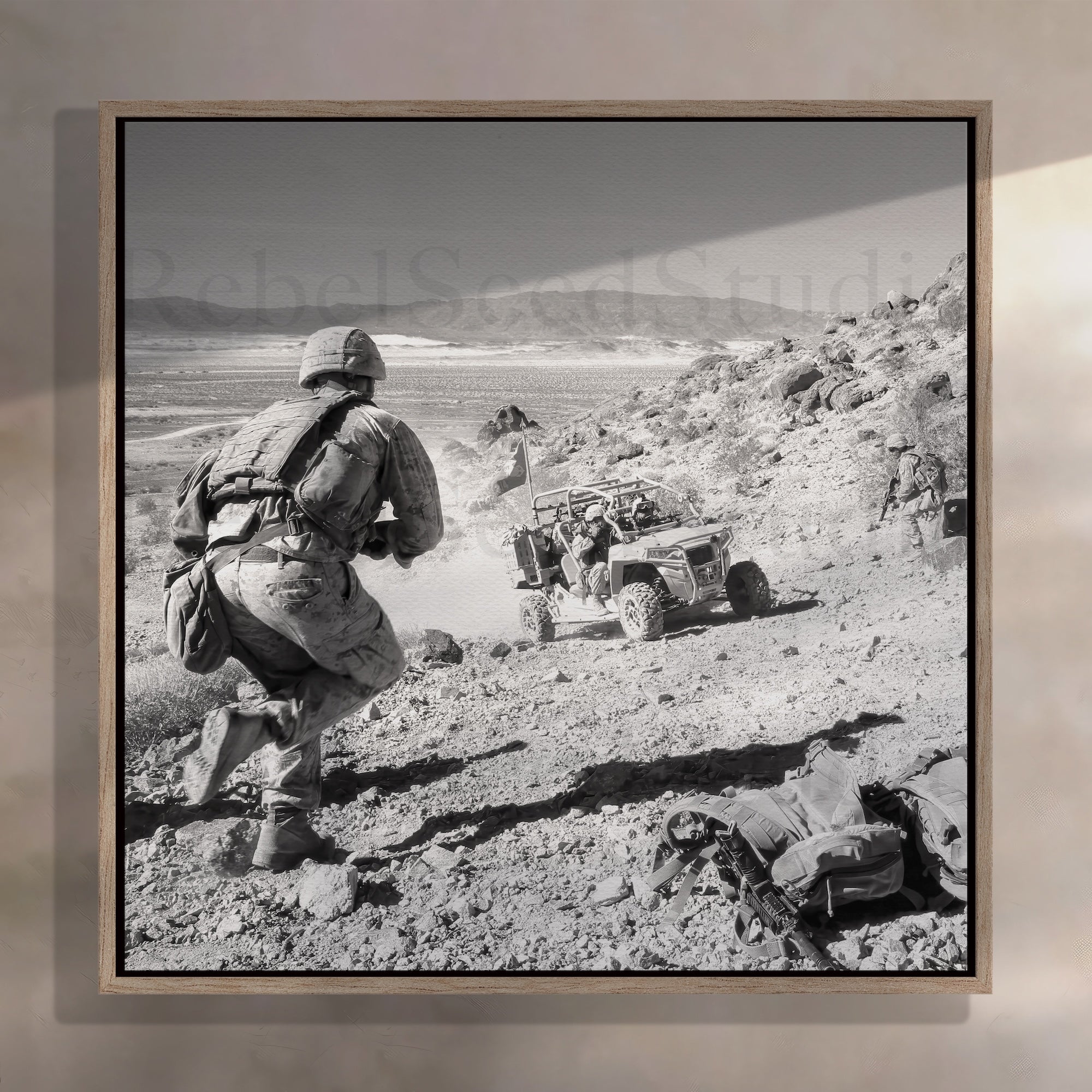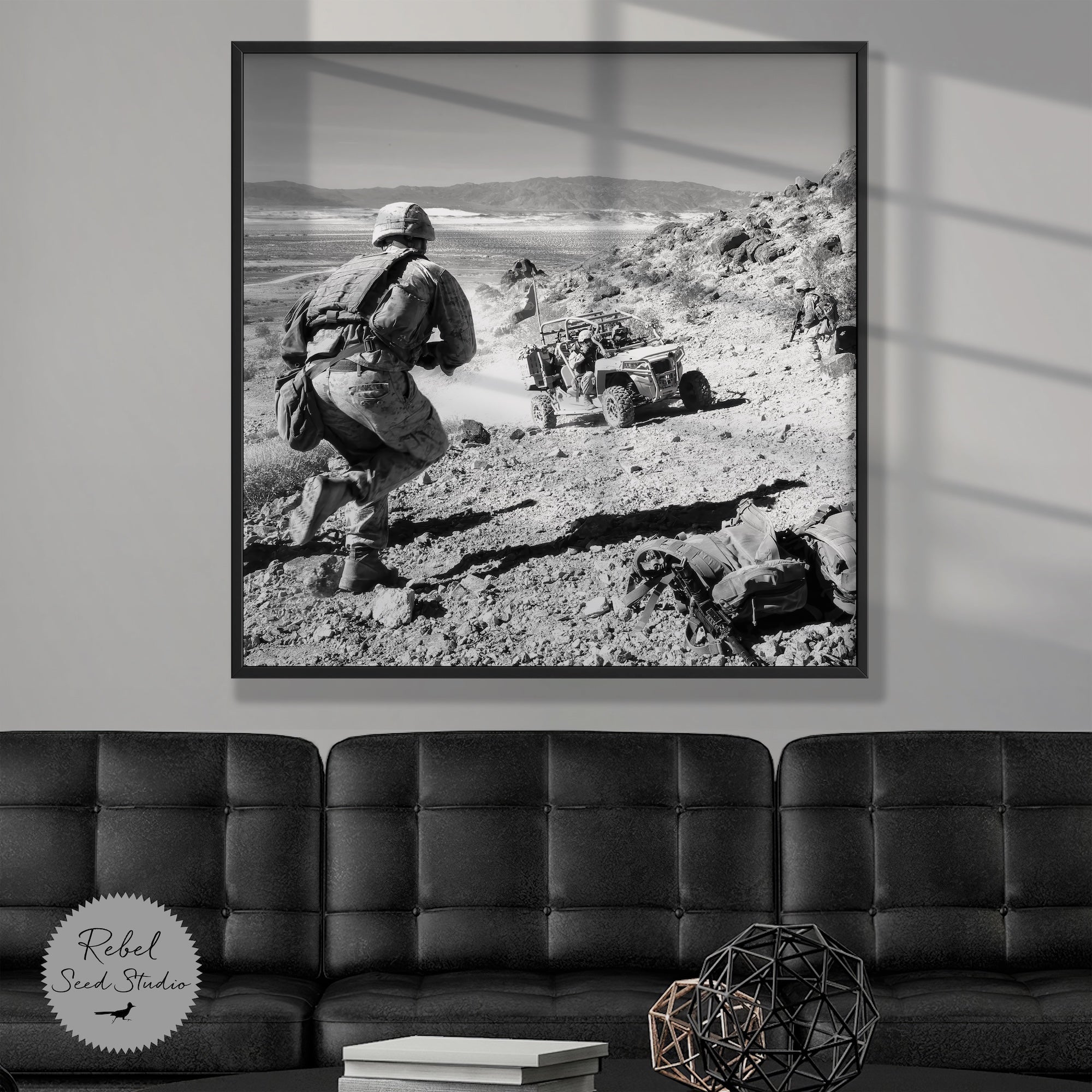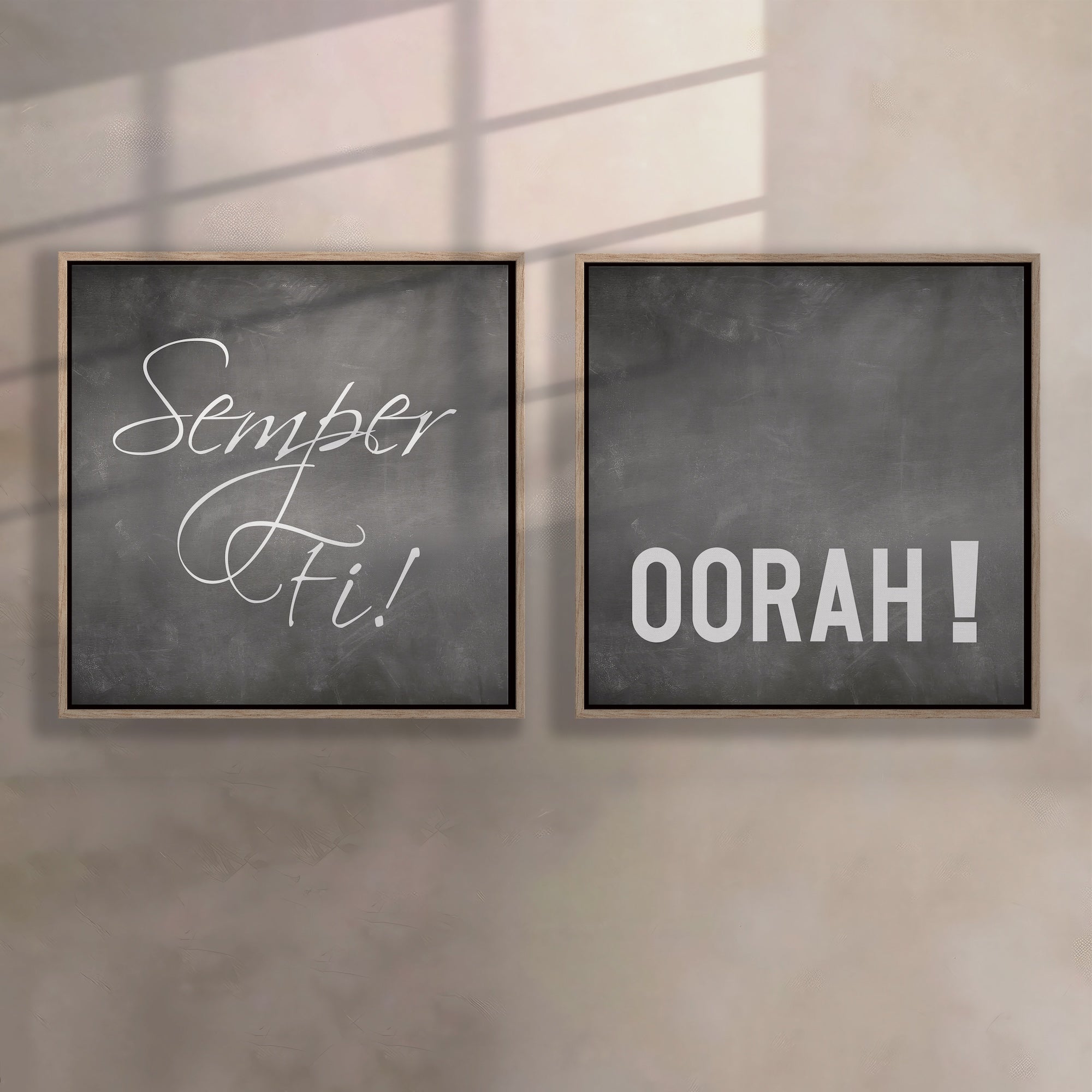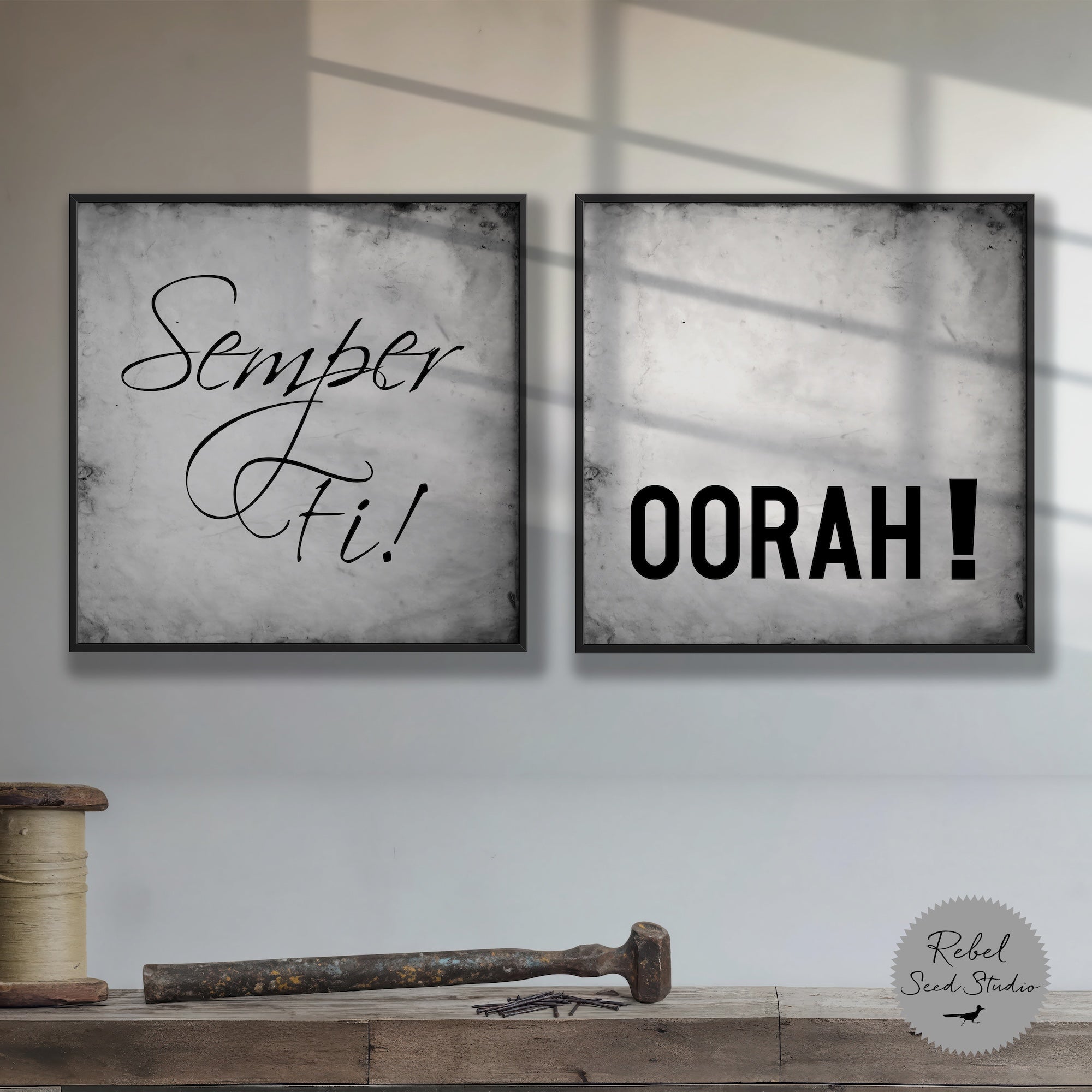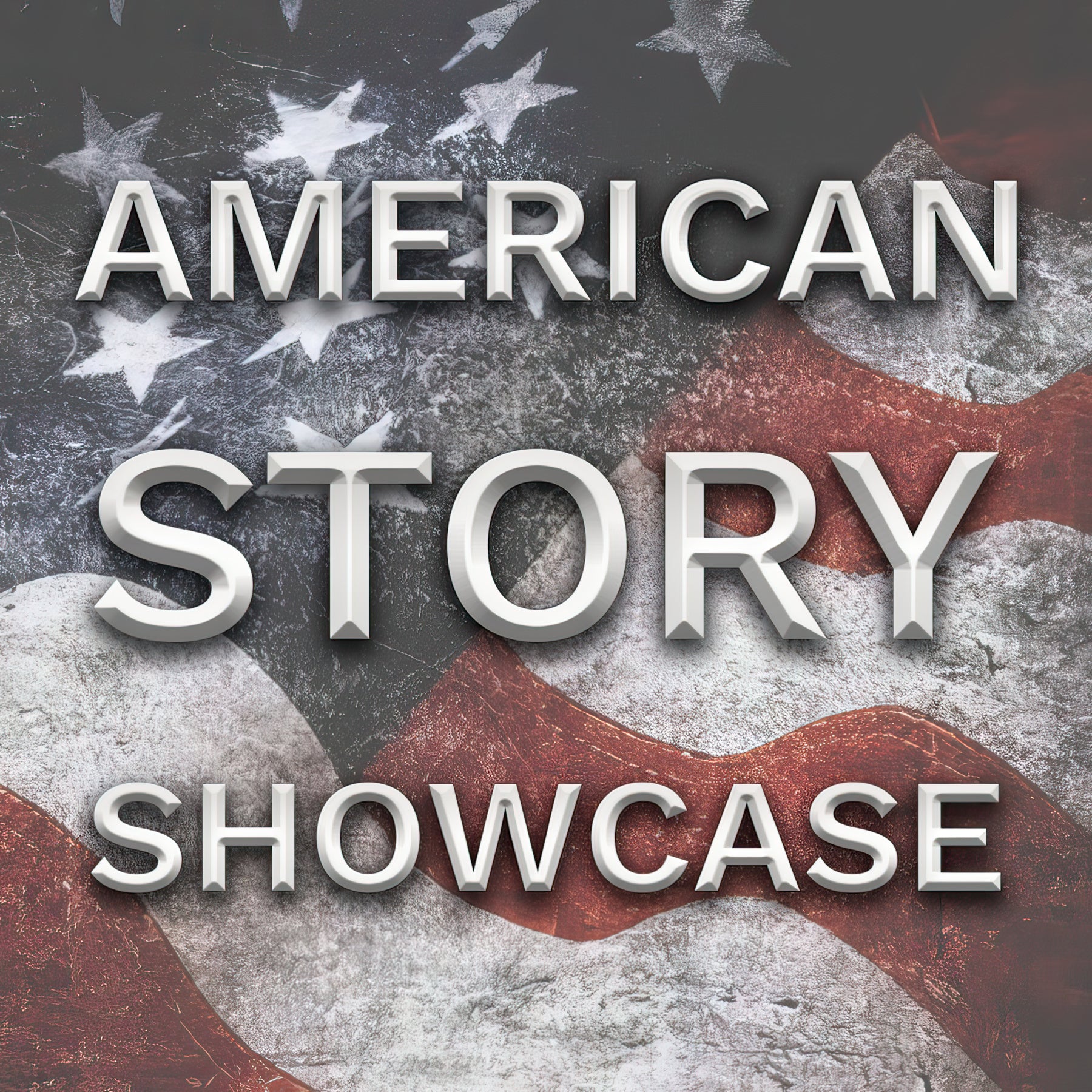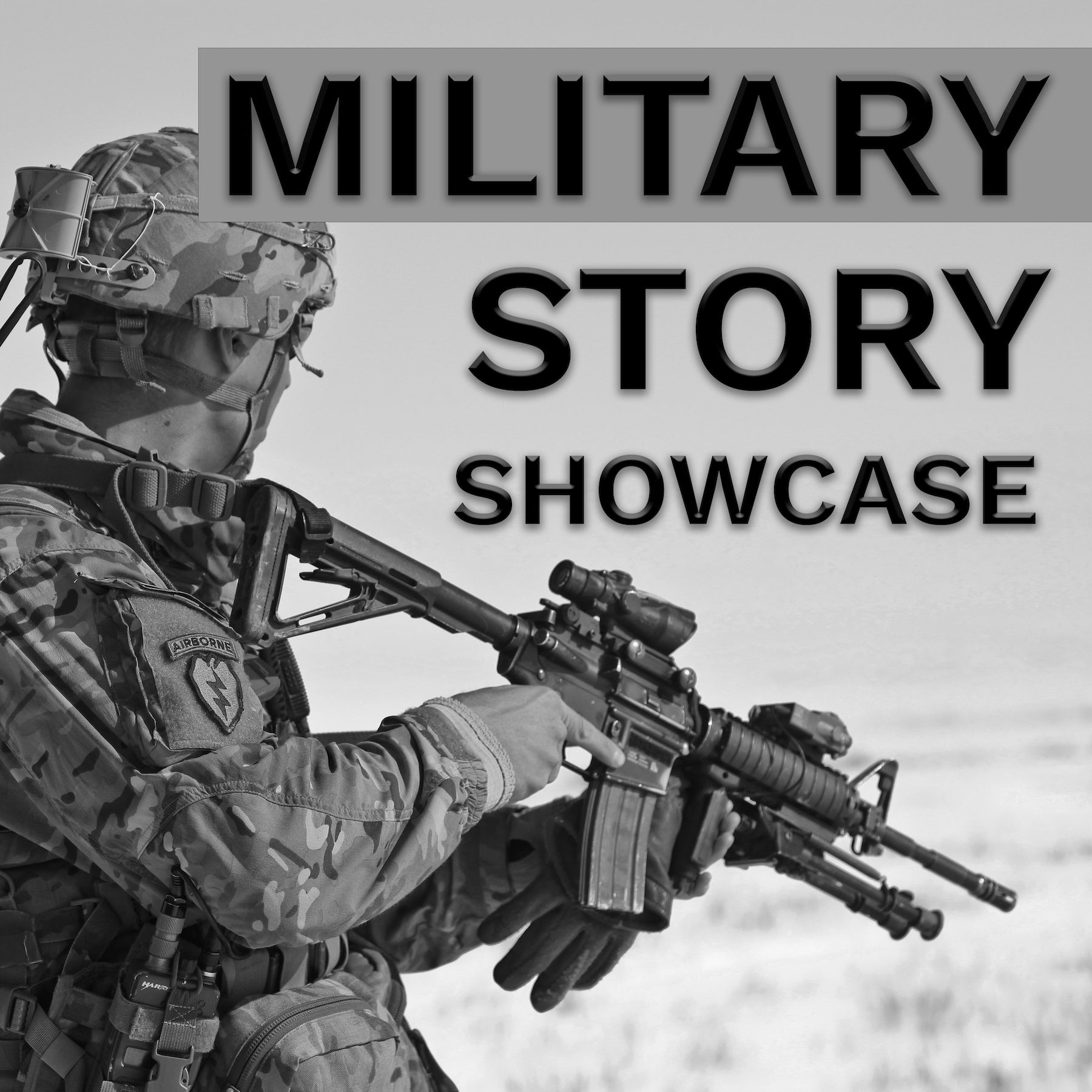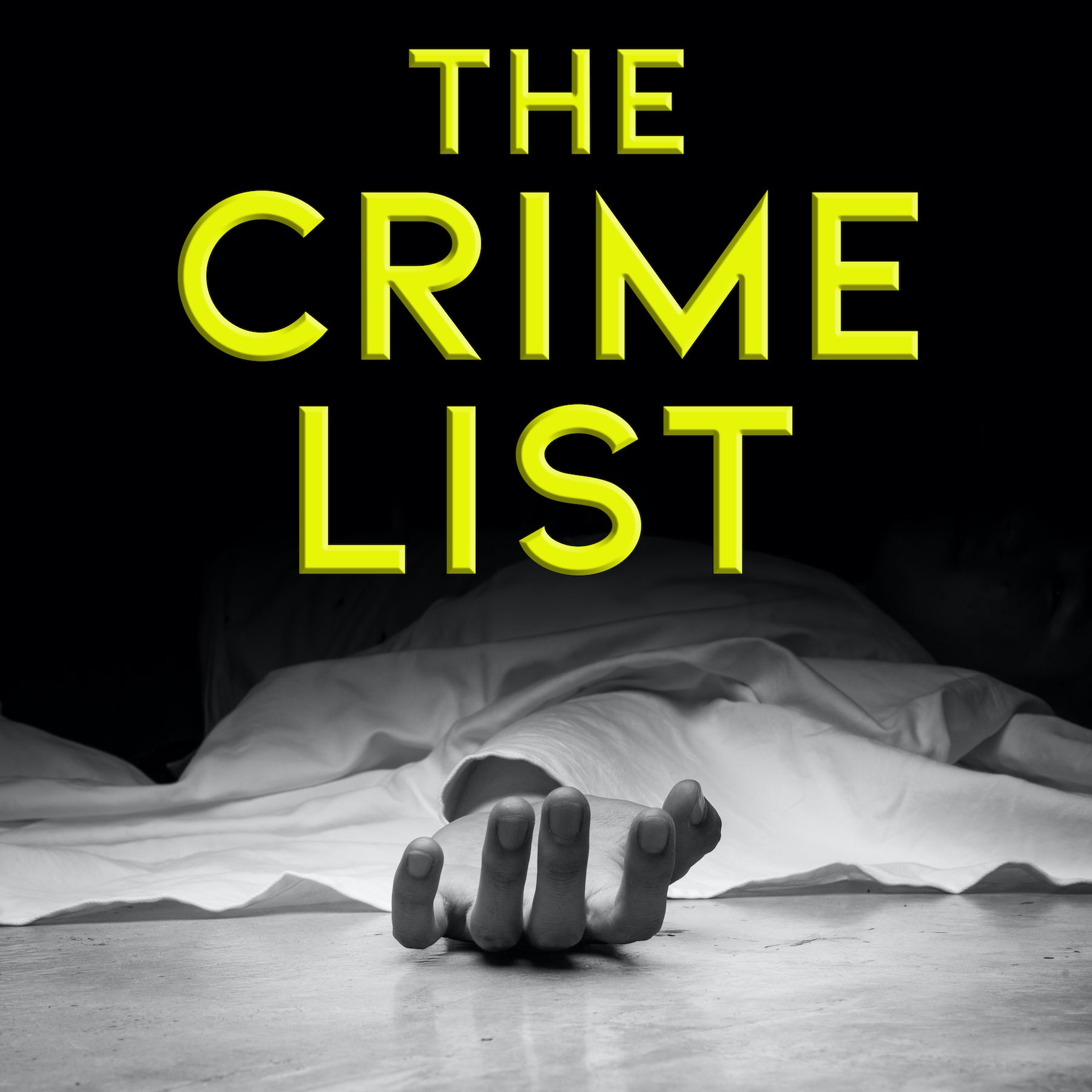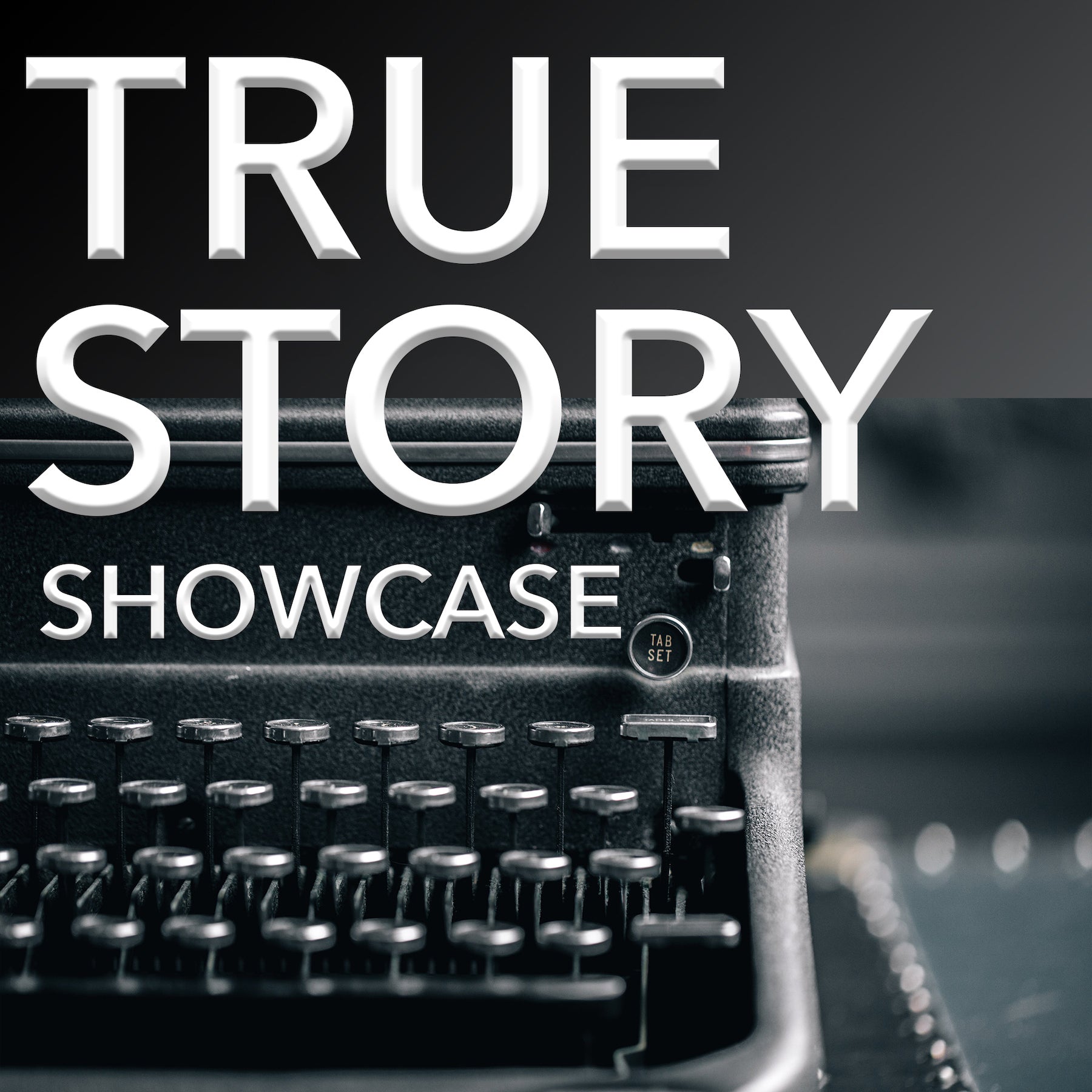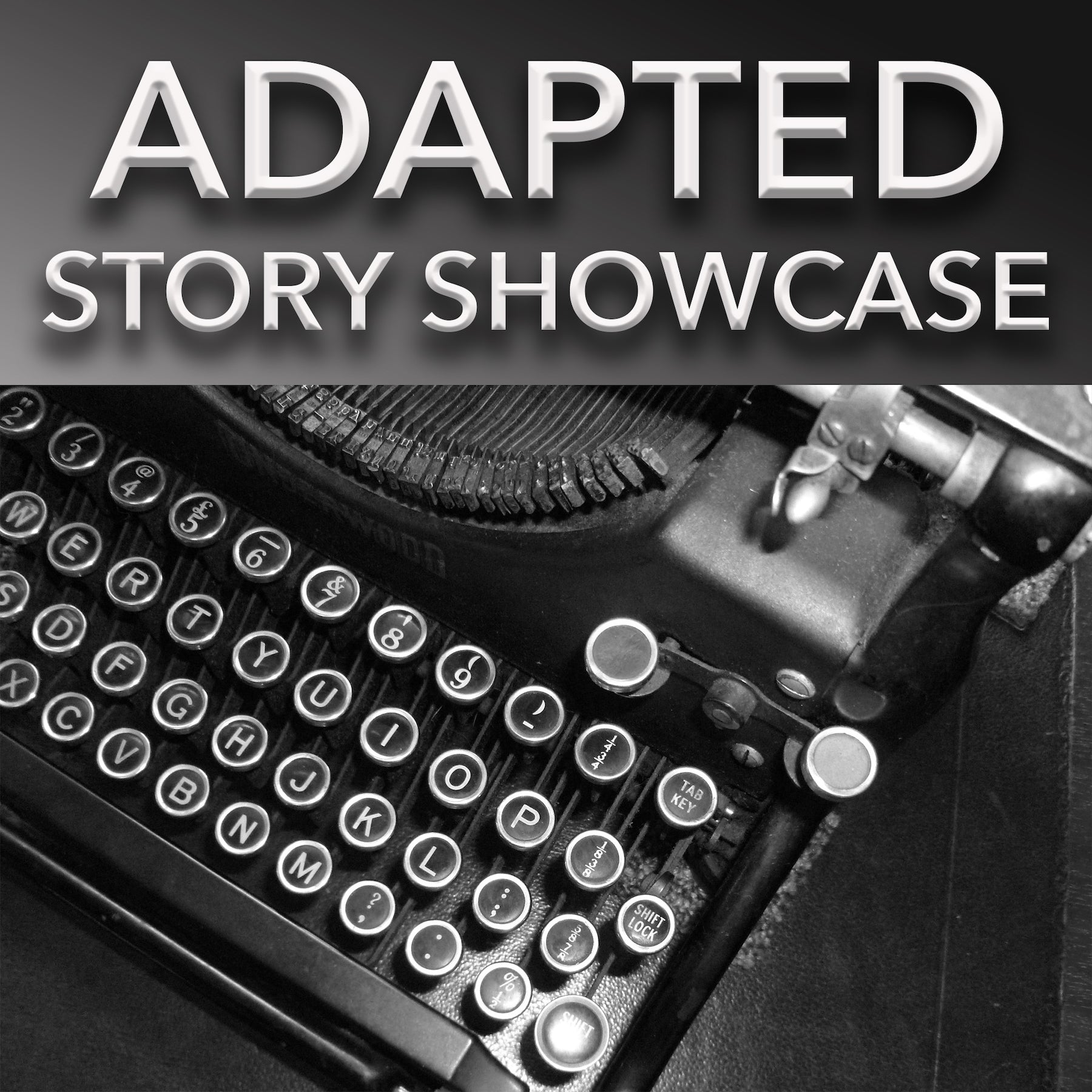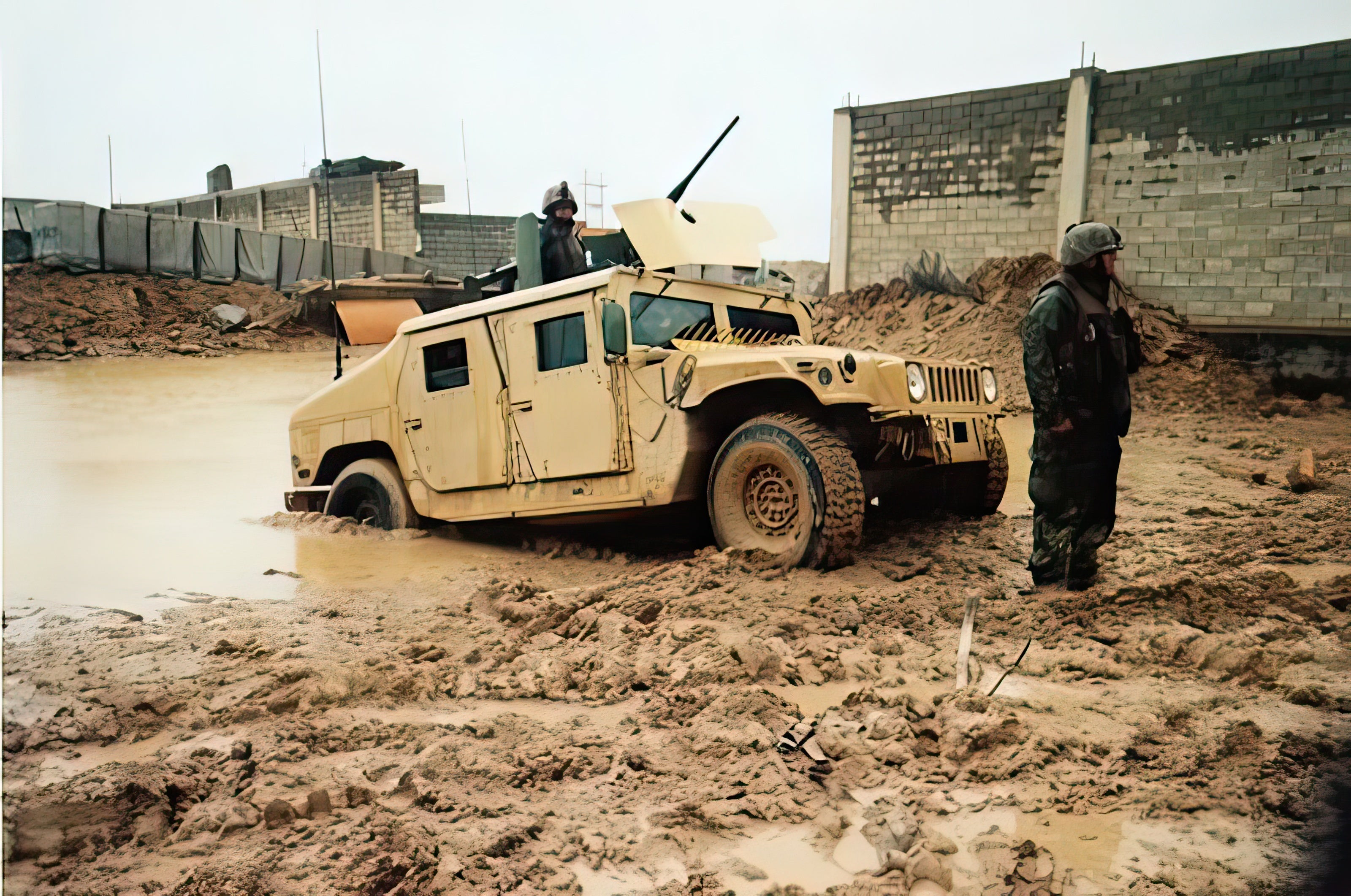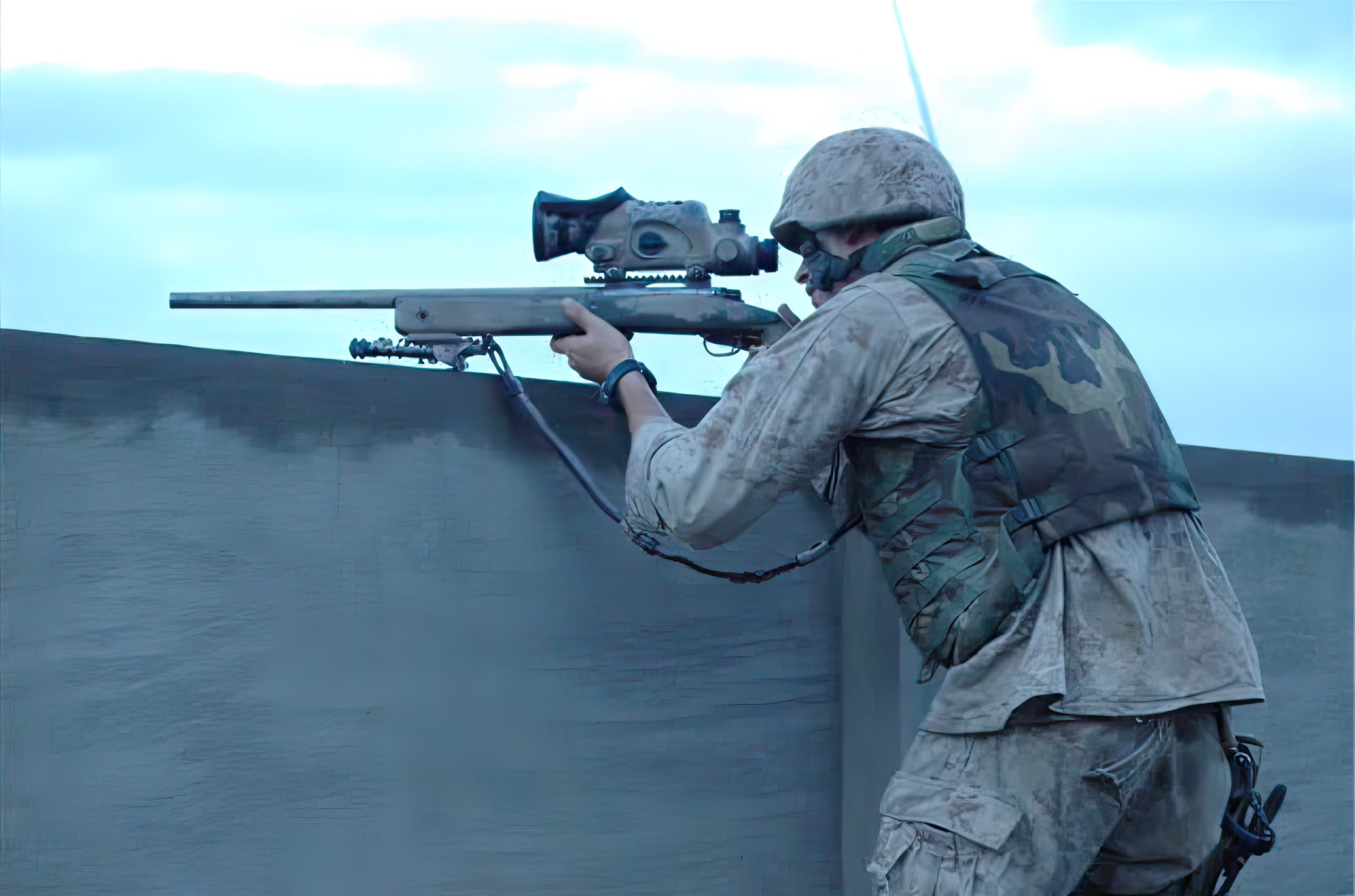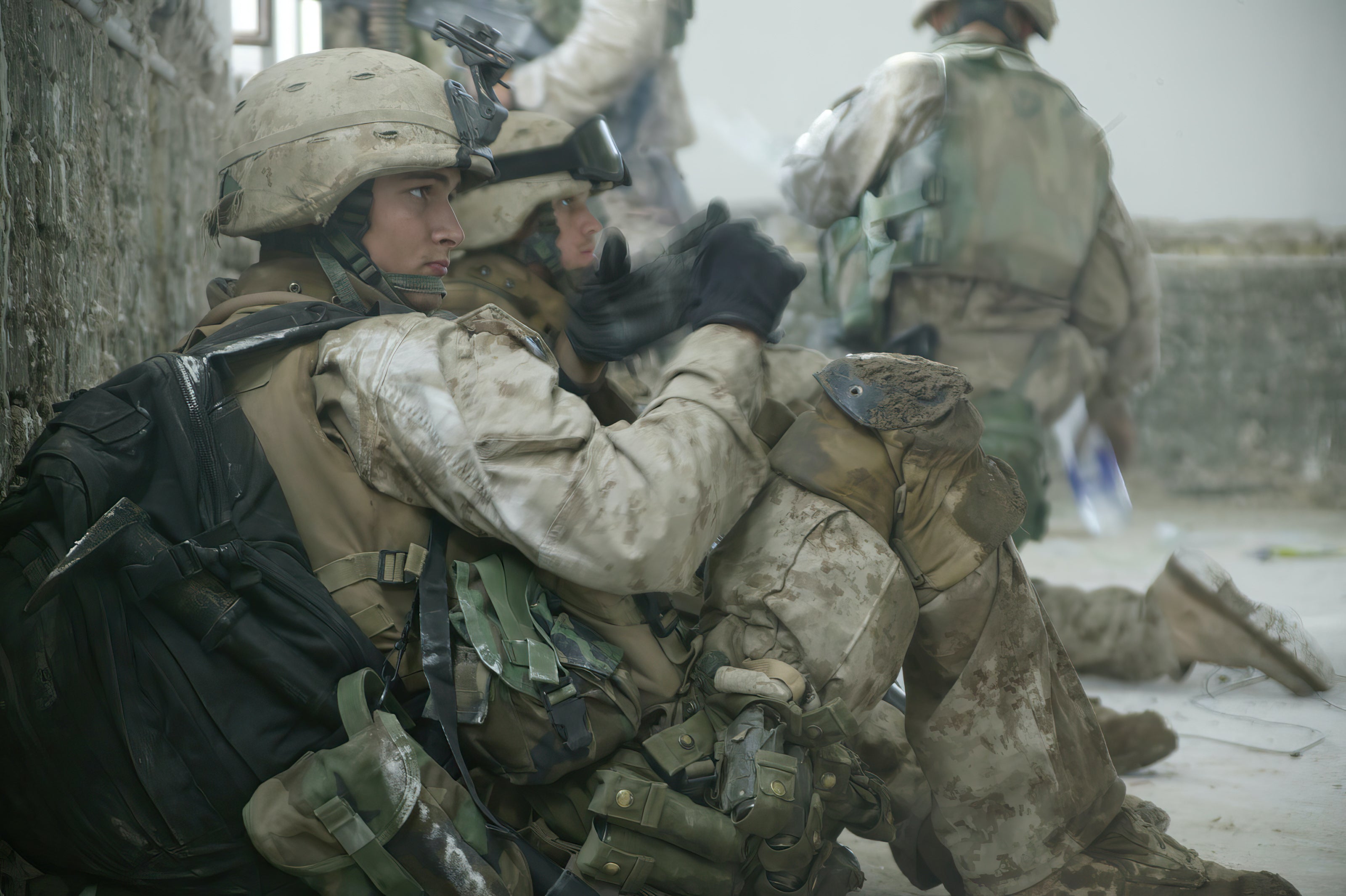
Battlefield Fallujah - Episode 12: No Better Friend, Semper Fi!
Marines and soldiers prepare the city for residents to return and render it safe for the national elections. When the polls open, more than 7,000 citizens vote inside Fallujah. As they prepare to leave, warriors reflect upon the experience and outcome of the battle.
General James Mattis: "What we want to do is make Marines and win battles, and you do this by creating a Marine Corps that is no better friend and no worse enemy."
The battle was officially declared over.
Lieutenant Colonel James Rainey believed that the decisive win would send a clear message to insurgents throughout the rest of the country: "The terrorists, specifically, fielded the best fighters that they possibly could and the multi-national forces, Marines, army, air force, navy, just absolutely dominated them. [They] destroyed them rapidly and decisively. So, I believe, that it will send a message."
Lieutenant General John Sattler was confident the assault had broken Zarqawi's command and control structure: "This battle's been shaped for months. Each and every time we had someone from Zarqawi's leadership identified, we either captured him with a direct attack or we killed him with a precision-guided munition. He was in death spiral, leadership-wise. He had gone into the second and deep into his third string. Third string is not as good as the first string, they make more mistakes, they leave the gene-pool rapidly. So, I feel that we have really had an impact and an effect on Zarqawi's command and control structure, whether we got him or not. If we knew where he was right now, I guarantee he'd be killed or captured before we ended this interview. So, that's how strongly we feel about him but [we] don't know where he is right now. Maybe he's dead, I don't know. We never really focused on him. We focused on breaking the backbone of the insurgency, reinstating the rule of law, which we're in the process of doing, [and] giving Fallujah back to the Fallujian people, which will come fairly soon."
Even though the city was not opened for the return of its citizens until December 23, I MEF was deeply involved in planning and supporting this phase of the operation.
Lieutenant General John Sattler: "My help was required in phase four, to start pounding on the ministries for the money and the resources, to get the ministries to come in and build the little team, which we built at Camp Fallujah. We were actually holding town meetings at Camp Fallujah with ministers out of Baghdad before we opened the town back up."
The interim Iraqi government would be involved in reconstruction and maintaining the rule of law.
Lieutenant General John Sattler: "The interim Iraqi government, the Prime Minister, is well aware of what' required to come in on the backside. It does involve some reconstruction and it involves a large Iraqi presence for security, many police. Once we re-establish the rule of law it has to be maintained, and that's civil authorities. So, we know there will be police coming in very close behind the Iraqi Security Forces. The Iraqi Security Forces may have to stay for a period of time 'til we get through that transition.
And, the Coalition Forces, although we will distance ourselves, we'll still have a hand on the shoulder, our shadow will be on the Iraqi Security Forces in case, just in case, they ask for us and call for us. We'll be prepared to assist as necessary. But, the whole reason for the clearing operations, building-by-building, is to set the stage where the Iraqi Security Forces [and] police now can come in and maintain the rule of law. Along with Iraqi governing officials, they'll have representation coming into Fallujah from across all the ministries, plus they'll stand up a mayor. And, they'll have a governance running inside Fallujah in the very near future."
The task was daunting because of the destruction. Essential services had to be restored—rubble cleared, power turned on, food distribution points established, stagnant water pumped out, explosives removed—a thousand and one things to be accomplished before the citizens could return.
Lieutenant General Sattler: "My job was to buy as much time as possible before we let the first citizens in, to drive our game plan to let the citizens in through the prime minister, because it had to be his game plan. It had to be his decision on how he was gonna repopulate the town, not ours."
Lieutenant General Sattler was pushed to open the city earlier by the interim government: "The prime minister wanted to start as soon as possible, to open the town back up. He wanted to do it ubiquitously, just open the gates and let everybody come back. We wanted to do it very orderly. We came forward with a plan to populate by subdivision, so we could clear rubble and establish water and minimal essential services in a sequential way. In other words, instead of having to have the whole town ready, we could start with one district, and keep the rubble clearing and the water and everything coming in, plus the removal of standing water, we could populate the town to coincide one step behind as we cleared and we got it ready to go"
Lieutenant Colonel Rainey responded to an ABC News reporter's question inquiring when civilians would be allowed to return to the city: "They're gradually coming back. They're being provided for outside the city. I believe that they understand that we'll have 'em back in the city as soon as it's safe for them. It's still a dangerous place. I'm confident that once the security situation gets set then you'll see an increase in civil-military type activities."
Colonel Mike Shupp: "The city's abandoned. There’s no electricity in it. There’s no power, and there’s no water. There’s dead laying all over the city. Dogs and animals are eating the dead. It’s a rough place. There’s unexploded ordnance all over. There’s broken wire lines down. There’s fires in the city. So, we have to start a major engineering effort."
RCT-1 worked closely with the 4th Civil Affairs Group (CAG) and a detachment of Seabees “to assess critical infrastructure inside the city.” As the regiment cleared the city, they processed, fed, provided temporary shelter to, and transported displaced civilians to safe areas north of the city. They also focused on the widespread flooding and the problem of enemy corpses. RCT-1 reported, “The team contacted religious, civic and tribal leaders, and negotiated for removal and internment of bodies.” The regiment also established humanitarian assistance and processing sites and cleared rubble from streets and roadways.
Lieutenant General Sattler termed this effort "Adventure Learning": "The essential services, the stagnant water was being pumped out, the rubble was being cleared, and you could watch it, and it was very systematic approach to cleaning the town up. It was built by Marines and sailors who’d never gone to school on how to do it. We called it another chapter in the book of ‘adventure learning’. ‘Adventure learning’ was, 'Come up with a great concept, get young people who have some creative juices flowing on how to do it, and then God damnit, go out and make it happen.' There was ‘adventure learning’ going on a daily basis, and a lot of the chapters of the ‘adventure learning’ book were being written simultaneously by the SeaBees, by the civil affairs group, and by the warriors, the warriors that were now working with the Iraqi Security Forces to establish the rule of law."
Lieutenant Colonel James Vohr dispatched front end loaders and dump trucks to clean the streets. It was estimated that some 1,200 insurgents were killed during the battle and had to be humanely disposed of. According to Lieutenant Colonel Vohr, “About 500 to 600 bodies were temporarily stored outside the city in a large building that had once been a potato processing factory. It was chosen because it had a cooling system.”
Brigadier General Dennis Hejlik: "When we started picking up the bodies in Fallujah after kinetic operations were slowed down a little bit, we recovered over 525 bodies out of Fallujah. And, we took ‘em to a place we call the Potato Factory, which is right there by the cloverleaf, you know, just east to the city, maybe three to five kilometers. The person who was running the morgue, Mortuary Affairs, was a female Warrant Officer, Ites. I’ll never forget her. And, I was sitting there talking to her and I was out there probably four or five different times, and I looked at her one day, and I said—obviously I knew she was a reservist, and I said, ‘Let me guess, you work in mortuary affairs back home, and the way you talk, you’re probably New England.’ And, she goes, ‘Well, I’m New England, but I’m an elementary school teacher.’ She was absolutely marvelous. If the Marine Corps is gonna do city building, you gotta have the reserves."
Personnel from a Mortuary Affairs unit searched the remains for anything of intelligence value. The foreign fighters often carried all their valuables with them, including ID cards, bank notes, and sometimes a GPS, which gave the coordinates of weapons caches. Initially Iraqis were hired to bury the dead but they would only take care of those they knew, which left the others for U.S. forces. Lieutenant Colonel Vohr stated, “The remains were consecrated and buried according to Muslim religious tenets.”
Lieutenant General Sattler was initially frustrated with the Iraqi ministries who came in to restore legitimate government control. The Iraqis were not used to working together or coordinating the various agencies: "It was a dysfunctional fledgling ministry, would be the best way to sum it up. The biggest frustration was it was constantly, ‘God willing.’ They had no concept, didn’t care about details, whereas we did."
After one meeting, Sattler responded in frustration: "‘No, no, no, no! We’re gonna help God. God willing it’ll work, but we are gonna help God.' We stepped in and we were overbearing and over powerful. We drove it, slowly but surely."
Eventually, the Iraqis did make it happen. As security stabilized, more and more government workers returned to assist in restoring essential services.
Brigadier General Hejlik: "It’s an Iraqi government responsibility. There’s a reason that the operation was called, Al Fajr, instead of Phantom Fury, because it was an Iraqi operation. That was one of the changes, is make the Iraqi government responsible for the reconstruction of the town."
Lieutenant Colonel Rainey felt the success of the battle to recapture Fallujah created a significant opportunity for the Iraqi government: "I think the most important thing that needs to happen here is that the Iraqi government and the Iraqi Security Forces need to take advantage of this huge opportunity they've been provided. This was a well-fought and well-won battle and it creates an opportunity. And, I think, capitalizing on that will be a huge victory. And, I believe, the Iraqi government will do that."
Lance Corporal Justin Boswood, Kilo Company, 3rd Battalion, 1st Marines: "We stayed there until January. They started letting people back in on Christmas day, or somewhere around there, they started letting civilian population back in. And it was really weird to go from being there for about two months with just nobody except for friendly forces there to people coming in and having to set up check points and everything like that. Vehicles were still off limits at that time. There was a real big scare about VBIEDs in the cars. So, they didn’t allow them to come in.
And the people started coming in really slow and really scared - hell, you couldn’t blame ‘em. Moving into their houses and finding dead bodies in their houses, insurgents. Their houses destroyed and they're wanting to go in this area, and not being able to go in this area. Found their house taken over by U.S. or Iraqi soldiers and utilized for firm bases. I imagine it was a hell of a shock for ‘em and what their, once great city to them, the city of mosques, ended up being a city of rubble within a matter of about a month.
They come in and settle in, no power, no nothing. Little pits of people at first, and then they started pouring in around the middle of January. The U.S. started reimbursing ‘em for damages. They could file for so much money. I think it was like 200 dollars or 500 dollars that they were giving each family to rebuild their home and cover their expenses of whatever was damaged and lost. They made out pretty good ‘cause the average house over here only costs about 200, 300 dollars, so it’s all right."
Brigadier General Hejlik: "First day we opened up the city was 23 December. I think we had probably 500 people come into the city and nine people to go to work. 5th of January, we had over 50,000 in the city. And, we have close to, with the government workers, close to 700 people coming to work every day."
In the January elections, 7,000 citizens voted in the national election.
Lieutenant General John Sattler: "I personally promised the Iraqi people they would vote from their houses in Fallujah. So, when we opened it back up - and we had the complete town opened up by before the 30th - we had to ensure we had polling centers inside Fallujah that were safe and secure so the Fallujian citizens felt comfortable coming to vote. And about 7,000 of them did vote inside Fallujah. So, that was very rewarding to every Marine that was involved - every sailor, every soldier that was involved - in the election process."
Colonel Shupp: "The polls opened, and across the street was an open market, and we went over and just started talking to people and Marines started buying cookies and sodas. And the people started realizing that—hey, no one’s out here to hurt anybody and that they’re safe. And they started seeing some of the Iraqi soldiers going to vote. And little by little, at Brahma Park, the first person to come out to vote was a woman. We had very little women, but the first one was a woman. And after that point, we had the TTP teams out there with loudspeakers and they were announcing the polls are open, come on out to the sites to place your vote, you know. And people just started coming out of the woodwork, and it was a great thing to see.
Next place we went to was out at Dave’s Field. Sergeant Major had a big Iraqi flag that was given to him and he said, ‘Sir, I want to fly it on the back of our HMMWV.’ And I didn’t think anything about it. I said, ‘Go ahead, Sergeant Major. Go ahead and put it on the back of our HMMWV.’ And we drove through that town with that flag on it. People were coming out all over. We had Iraqi soldiers coming out and kissing the flag, getting their pictures taken with it. They were so proud it was unbelievable. All together we had over 9,000 people vote inside of Fallujah, the largest turnout for all of Al Anbar Province."
Lieutenant General John Sattler: "In the election process, a lot of the disenfranchised were sitting on a fence, wanted to wait and get down the winning side. They’re now realizing the winning side is the Iraqi government. It’s not these thugs and insurgents, who have no future unless Iraq goes back to the old ways, because they have blood on their hands. And, when we finally do get down to finding the criminal element, that executed Saddam Hussein’s plan, that element has nowhere to go. So, they have to fight this desperate, last ditch effort, called the insurgency. And, the more we separate the people from the insurgency, the more it becomes isolated and the faster it’ll die on the vine, or it’ll be killed by us, and the Iraqi people."
Parting Thoughts....
Author and US Marine veteran Bing West reflected on the significance of the battle and lessons learned: "Fallujah had 40,000 houses. Somewhere among those 40,000 houses, 600 houses had diehard jihadists hiding inside waiting to kill the Marines who came into the house. So, you're playing a game of blind man's bluff because you don't know which of the houses they are, and you have to search every one of the 40,000 houses. Six-hundred firefights inside houses at ranges of 10 to 20 feet. In the history of all the SWAT teams in the police, in all of Europe and the United States, there have been less than 200 such fights, and the Marines had 600 of those fights, in one battle. The Marines learned so much from that, you could take the Marines for the next 10 years, tell them to take any city, and once they set it up, within 4 days they would have the city taken."
Captain Theodore Bethea, Company Commander, Charlie Company, 1st Battalion, 8th Marines: "The success of the plan is the fighting spirit of the Marines. It's the young Marines at the team and squad level is what carries the fight. I attribute our success to them."
1st Lt. Christopher Conner, 1/8 Charlie Company Executive Officer: "And, I'll tell you what, America has got the best fighting force in the world. They really do. And I'll remember Marines that stood up and stepped up to the challenge of their billets and what they were doing. This is one of the best times to be a Marine, and be a leader of Marines, a Marine Officer. The Marines that I work with, who work for me, who I work for, we're all just one single bond of people. They know that I would do anything for them. And, vice-versa, I know that those Marines would do anything for me because we're all [a] band of brothers here."
Major Andrew Hesterman, RCT-7s Air Officer: "I will remember the build-up for it and the courage of the Marines. As we worked up for this thing, we were doing briefings of how their training dove-tailed into what they were about to go do. It's a fearsome thing to know that this town has been festering for months and months and months. We tried to go in once but were somewhat politically hamstrung and pulled back. These guys have been building and we've watched them with the Scan Eagle building trenches and hardening positions, knowing that in four or five days we're going to go in there and have to go against that stuff, and we couldn't shoot it. That was tough. And, the courage of the Marines, really, they're the ones that saw that. I still haven't crossed the outside perimeter of the town. I've been up 400 [or] 500-meters from it... within range of getting shot by it, and we were shot at just before we rolled in... but I didn't walk through the town. Those guys knew they were going on foot, not riding in a tank. And, there's Marines in tanks too, obviously, but the Marine who has to walk through that town... good on 'em... good on 'em. They put up a good front."
Staff Sergeant Christopher Jewell, 2nd Force Recon, 4th Platoon, Team Leader, Team 2: "Probably the most valuable thing is, no matter what the circumstances are, you gotta make decisions. Somebody's gotta make a decision, and you gotta live with it. And, you can't look back upon it once you make it. Sometimes the decisions you make are great, and sometimes they're not, but you can't just sit there, you can't lay there. And, you can't make no decision. You gotta make a decision, and you gotta act fast. There's no such thing as a bad decision. As long as everyone executes that decision that's tactically sound, it will fucking work. I believe that. And, if you sit there and you don't make any decision, well, worse things are going to happen to you. But you gotta make a decision, you gotta stick with it, you gotta fucking execute it."
Captain Michael Stroud, Forward Air Controller, Bravo Company, 1st Battalion, 8th Marines: "The Marines are pretty amazing. I was talking to the New York Times' reporter, he's like, 'I can't believe you guys do this.' I'm thinking, 'I can't believe we do this either.' I mean, these lead platoons go out there into the unknown and do their job. That impressed me. The Marines they all did a good job. It's nothing that you can ever prepare for."
Major David Morris, 2nd Force Recon, Air Officer and Forward Air Controller: "I'm proud to serve with these guys because I've done everything that they've done. I've done the humping. I've done it all, and it's opened my eyes. They are very, very professional. These guys... although Force Recon is not is not part of SOCOM [and] we don't get the recognition... these guys are as good as anybody. These guys are as good as the SEALs. These guys are as good as the Special Forces. They're as good as they come. There could have been no better platoon than this platoon to be put in that situation because they proved their mettle and what they're worth. And, they showed what a highly, highly trained platoon can do. It was incredible. It's amazing. They all went above and beyond and, hopefully, they'll be recognized for that."
Captain Brian Mulvihill, 1st Battalion, 3rd Marines, Battalion Advisor to the Iraqi Forces: "Tribal loyalty is more important to any of these soldiers than national loyalty. It just seems like they're about 600 years behind everyone who has an economic and a society based on country... based on a nation and a national pride. You can compare it to Africa where the Imperialists just came in and drew lines on a map that crossed boundaries and tribes, and families and everything, and we westerners expected it to be countries. We expect Iraq to be a country. To me, most of them don't want to be a country. The Kurds definitely don't want it to be part of Iraq, they want to be Kurdistan. The tribes, maybe they'll say they want to be part of Iraq, but that tribal loyalty will always be higher than the national loyalty. Now, Saddam's methods seemed to be somewhat proficient... efficient at holding a country together out of fear and intimidation, and mass murder. Obviously, not the way to do it. But, I think, Saddam's time paused the development of the country going from tribes to a nation.
Maybe, had there been no Saddam, maybe the Kurds would have had their own county. Maybe the Arab Shias would have a pack with the Persian Shias in Iran [and] they would have melted into Iran, who knows? Maybe there would have been countries based on the Sunni and Shia religion. But, I think, the artificiality that Saddam created just paused everything in the historical development of this land. So, now we're fighting that and we're trying to enforce this boundary that maybe shouldn't be there. The cultural differences, it's going to take over 100 years [for] this culture to develop itself as a nation. They just don't have that will, the drive, the determination to want to be one Iraq, and be willing to fight for it and die for it.
There are a few out there. I met some soldiers. One soldier in particular, I'll call him 'Roger', he's with 1st Company. He wants to be a Marine. He loves Marines. He speaks some broken English. I've never even seen a Marine work as hard as this guy does. He carries a PKC machine gun, and he rigged the ammo can to act as an ammo pouch, underneath the machine gun. Now the ammo can weighs a good four or five pounds more than any ammo pouch does. And, he carries his AK-47. And, he will never take his eyes off where he has security. He must have found it in the street, but he wears a night vision goggle mount on his Kevlar, but he doesn't have night vision goggles. He just wears it because the Marines are wearing it, and he sees them, and he wants to be a Marine. And, he wears knee-pads on his knees but then he wears another set of knee-pads on his ankle because, when the Marines don't wear their knee-pads they slide them down to their ankles, so he likes to have them there to look like the Marines. So, if there's more guys like that, maybe there's hope. It's just... it's tough.
The things that motivate us, don't motivate them. The personal pride and the mission accomplishment is not first and foremost, by any means. It's sort of a superficial selflessness. They'll come up to you and if you say you like something they own, they'll give it to you, or they'll give you half of what they're eating, in a heartbeat. But there's a price behind it. You now owe them something. You owe them a gift of equal value. It's not a real sacrifice. They never sacrifice anything without expecting something in return. There's never that self-sacrificial nature of the Marines going into combat for someone next to them or for the mission. Will that ever come? I don't know. Not in my lifetime. But I will say, forming and developing an Iraqi Army is the way to get U.S. Marines and U.S. soldiers out of here. That's why I volunteered for this."
Lance Corporal Justin Boswood, Kilo Company, 3rd Battalion, 1st Marines: "They say it’s the worst place in Iraq right now, so there’s no better place for us to be than the worst place. We’re pulling out the bad guys, little by little. Maybe, hopefully, making it a safer place for everybody to run around and take care of their normal lives and try to get back on some kind of schedule. Who knows, maybe in a little while we’ll be able to pull out of here and they’ll send us to some other little shit hole down the road to clean up and push all these people out so they can have better voting turnouts and better support their country and let their young men go and join the Army instead of joining the insurgency."
1st Lieutenant John Jacobs, Platoon Commander, 2nd Platoon, Kilo Company, 3rd Battalion, 1st Marines: "You hear about Marines on Iwo Jima, Guadalcanal, and Belleau Wood. You hear about what heroic guys they were. And, people think that’s a thing of the past, different generations, but these kids, these guys, who did this thing in Fallujah, they’re the same. [They're the] same guys who were at Iwo Jima, Tarawa, Belleau Wood. Amazing young men, without a doubt. People need to know that - that this was another of the greatest generation."
Major Todd Desgrossielliers, executive officer, 3rd Battalion, 5th Marines: "We’re here to kill insurgents. All that SASO stuff, it sounds nice when you’re briefing it, but we’re here to kill insurgents. This is the war by proxy that we’re fighting over here. This is the war on terrorism. Every terrorist we kill here is one less terrorist that can do something in the United States. That’s how I see it anyway."
Lieutenant Colonel Willard Buhl, commanding officer, 3rd Battalion, 1st Marines: "They had the first democratic elections in the city. So, I’m particularly proud of that, as well, as what our men did in the city. If I leave anything for the official record, you know, you can do a lot of chest beating, and I have, but, you know, it was expensive. It cost us men killed there. And, a lot of men wounded. And, a lot of them wounded, they’re either recovering or they’ll never quite be the same again. And so, I just want to put that into perspective that, you know, we did a great job there, but it was expensive."
Lieutenant General John Sattler, commander, I MEF: "Thirty-four years as a Marine, coming up here, it's the greatest experience of my 34 years. I’ve never had a bad Marine Corps job. I’ve had a chance to do a lot of different things in a lot of different arenas around the Corps and outside of the Corps, but this has been my greatest experience as a United States Marine. Getting to watch these young men and women on staff, the commanders, from the general officers all the way down through the fire team leaders, do their job and do it with enthusiasm, and do it with confidence.
I’ll never again have to think of honor, courage, and commitment as a bumper sticker, or a card in my wallet, or a poster on someone’s wall, ‘cause I had the opportunity to walk among the heroes of the nation, true giants, you know, true heroes. You don’t have to go to Cooperstown, you don’t have to go to Canton, Ohio. The warrior hall of fame, from my perspective, and again, my narrowest perspective, it’s in al-Anbar Province. There is no rear areas. Everybody there was a warrior. Everybody strapped it on every day. Every time we went outside the compound, you were in combat. And, every time there was gunfire, instinctively, everyone moved to the sound of guns.
I was asked by a reporter, and I said, 'It’s kind of like being a fireman, all my life I’ve been a member of the fire department. I study my manuals. I’ve gone to my schools. I’ve always been willing and ready to go, but everywhere I was, there was never a fire. So, I’ve polished the engine, read the manuals, rehearsed, practiced how to climb the ladder, but I never got to fight the fire. And, that’s okay. We don’t have to fight the fire. Part of deterrence is being prepared to fight the fire. But, in this particular case, by virtue of falling into MEF command at the time I did, and the situation that was there, I got a chance to fight the fire, with the finest firefighters that, I think, have ever donned any uniform, Army, Navy, Air Force, and Marines.' This is an experience I’ll never live again, but at least I had the opportunity to play a small part in this, and I’ll cherish that for the rest of my life."
Major General Richard Natonski, Division Commander: "I think the Marine Corps does it right. There’s just something special about a Marine, the flexibility inherent in a Marine, and a ‘can-do’ attitude. I’ve been truly blessed with a staff and the soldiers, sailors, airmen and Marines in the division. I mean I couldn’t ask for a better team. This was an exciting period of time to be in Iraq. My only regret are those that we’ve lost in action. I hope that our country will never forget the sacrifice that those Marines, soldiers, sailors and airmen have made, not only for our country, but for the people of Iraq."
Colonel Mike Shupp, commanding officer, RCT-1: "I’ll never forget this as long as I live. One of the sheiks at a reconstruction meeting told Major General Mehdi that a sheik should approve who’d become the police department. And General Mehdi stood up and he gave a speech and said that you were the ones who were here in approving the people during April, and look what would happen. And he says, ‘I want you to know that none of my men are sponsored by anyone, that they fight for Iraq, and they take on the sacrifice that they’re doing, because they feel as if they owe it to Iraq and they want to give opportunities to their families.’ I was never so proud of that guy in my entire life. Seeing this guy, one of George Washington’s Army that came to us with nothing, all of a sudden standing up to these - some of them, absolutely the enemy, some of them, absolutely the Muj - standing up to ‘em and telling ‘em that, you know, ‘Hey, don’t, don’t play this game with us. This is not the way it’s gonna be. This is the truth that’s really gonna take place. This is what’s gonna happen.’
The other day I was out there at ECP 5, and I went up to a POB, and I asked him, I said, ‘How are you today?’ and he goes, ‘Good.’ And I go, ‘Do you have everything you need?’ and he goes, ‘Yes, I do.’ And he goes back to the interpreter, Mohammad, and he goes, ‘Are you satisfied with my work?’ That's a turning point right there. I can’t tell you if I was ever prouder. They felt as if we were part of their family and that we gave them a chance that they would never be able to get from anyone else. People back home don’t know about that.
We were making a difference, and anybody that says that we’re not, is a damn liar. And they need to take a look all the things that have happened in the past, inside of this community. Watch it on the feeds, as they see people walked out into those fields. Shot in the back of the head and just thrown into a ditch. Go into a building and see people with their legs chopped off with an axe. You know, a torture room. Or people chained up to a fence. Go look at the little kids inside of the city. There was 122 mm rocket attack inside of the city. The first people there were POB, Iraqi Security Forces, Marines, and the fire department, and people come up to me and say, ‘You’re not gonna leave us, are you? You’ll protect us, won’t you?’ Visibly shaken, visibly afraid of what was going on.
This is not a place where we can sit back and let the enemy dictate the terms. They understand strength, and they need a chance to build their government. And I think if they’re given that chance to build their government, something good will come out. But these are people tasting freedom for the first time. It’s a new experience for ‘em. They’ve been a society of ‘have-nots’. They have not had anything. And if you go out there and see a little kid, and the little kid will go out there and he’ll get a piece of candy from you, and he’ll put it in his pockets right away, and then he’ll ask for more. And he realizes that this might be his only chance that he’s gonna get candy. So, he’s gonna try as hard as he can to get as many pieces as he possibly can. That same approach is with the other people. You know, they’re doing the same thing. They’re trying to take in as much freedom as they possibly can right now, because they don’t know if they’re ever gonna have it again, or they don’t know what’s gonna happen in the future.
I'll never forget this one. This is a good story... little kid came up and he goes, ‘Are you gonna take away those checkpoints?’ He’s like 10-years old, about the age of my nephew. ‘Sir, are you gonna take away those check points?’ And another little boy said, ‘No. They can’t take away those checkpoints. If they take away the checkpoints, they’ll let the bad men in.’ Through the eyes of a child, it reflects the images of everyone around them. And that little boy knew that—what was going on in that town beforehand. They had nothing to offer. The enemy had nothing to offer these people. The enemy was out for one thing, personal gain. And I am convinced that the former regime, the Islamic fundamentalists, all these different factions that are identified as the enemy, are nothing more than a cover for a family type crime syndicate that existed [chuckles] way before any of us can even imagine. Fallujah was known for smuggling and criminal activity, and that’s exactly what they did, and we're the legitimate authorities that came in here to disrupt it. And the people that were the power brokers, the criminals, the guys that were the most evil of the evil, that were able to rise to the head and kill whoever they had to, those are the ones that we’ve stopped.
There’s no personal gain for us over here. The only personal gain that I could possibly imagine for us is that we’re protecting our families. I told our Marines that, you know, that the fight against terrorism is the principle reason that we’re over here, and the people that we killed inside of this city, the outsiders, these are the people that are determined enough to travel to fight and to kill Americans. And if they didn’t do it here, they would surely do it back in the States. So, either we fight ‘em in places like this, or we’re gonna have to fight ‘em back in our home."
Brigadier General Joe Dunford, Assistant Commanding General, 1st Marine Division: "I’m in the how-to business, not the whether-of-if. I mean, someday I’ll afford myself the luxury of wondering whether we should have fought, or if we should’ve stayed, or at what point we were winning and what point we were losing, but right now I spend every waking moment trying to figure out what we can do about tomorrow, not about yesterday."
Lieutenant Colonel James Rainey, commander, 2nd Battalion, 7th Cavalry: "I'd like to say to the American people that the American fighting man, regardless of what service we're talking about, is the most disciplined, well-trained, well-equipped warrior that's ever been fielded. And, that he's incredibly intelligent and dedicated, kind, fearless, and absolutely lethal on the battlefield. And, I just ask that - regardless of what your feelings are about this particular war - that everybody back home be proud and humbled, and grateful for the great work that these young men and women do every day."
In 2014, 10 years after the Second Battle of Fallujah, the men of 3rd Battalion, 1st Marines reunited for a ceremony at the Marine Corps Base at Camp Pendleton. After the ceremony, the men of 3/1 hiked a steep ridge on the grounds. It was a hill that the Marines had ascended in 2004 before going to Fallujah. Twenty-nine Marines who were on that hike in 2004 did not return home from the battle.
At the top of the ridge, Colonel Willard Buhl remembered the fallen and concluded his words with a Native American prayer: "Hold on to your life, even if it's easier to let go. Hold onto my hand, even if someday I will be gone from you. Hold on. Hold on, men. Hold on. Semper Fi."
Produced and narrated by Laura Cross
Based on the book Operation Phantom Fury: The Assault and Capture of Fallujah, Iraq by Colonel Dick Camp
Special thanks is given to the Department of Defense.
Grateful acknowledgement is made to the U.S. Marine Corps for historical interviews.
Warriors featured in this episode:
Captain Theodore Bethea, USMC
Lance Corporal Justin Boswood, USMC
Lieutenant Colonel Willard Buhl, USMC
1st Lieutenant Christopher Conner, USMC
Major Todd Desgrossielliers, USMC
Brigadier General Joseph "Joe" Dunford, USMC
Brigadier General Dennis Hejlik, USMC
Major Andrew Hesterman, USMC
1st Lieutenant John Jacobs, USMC
Staff Sergeant Christopher Jewell, USMC
Major General James Mattis, USMC
Major David Morris, USMC
Captain Brian Mulvihill, USMC
Major General Richard "Rich" Natonski, USMC
Lieutenant Colonel James Rainey, U.S. Army
Lieutenant General John Sattler, USMC
Colonel Michael "Mike" Shupp, USMC
Captain Michael Stroud, USMC
Bing West, USMC
Interviewers: Dr. Fred Allison, Bret Bair, Laura Cross, Lieutenant Colonel Timothy Crowley, Lieutenant Colonel Dr. Ken Estes, Sgt. Tony Nardiello, Unidentified Reporter for ABC News, Chief Warrant Officer William Hutson, Lieutenant Colonel John Way, Captain Joe Winslow, Master Sergeant Robert Yarnell


